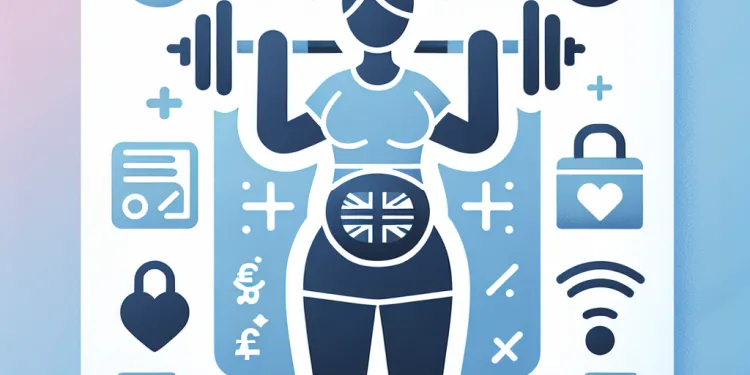Find Help
More Items From Ergsy search
-

Epidural for labour at North Bristol NHS Trust
Relevance: 100%
-

Having an epidural in labour at St Michael's Hospital
Relevance: 100%
-

How is spinal anaesthesia different from an epidural?
Relevance: 66%
-

Can exercises help with labor preparation?
Relevance: 52%
-

Anaesthetic procedure for elective caesarean section (C section)
Relevance: 34%
-

Having a Caesarean Section
Relevance: 26%
-

Your Caesarean birth
Relevance: 25%
-

Will I be awake during a C-section?
Relevance: 25%
-

What is a Caesarean birth?
Relevance: 23%
-

What type of anaesthesia is used during hip replacement surgery?
Relevance: 22%
-

Why might a Caesarean birth be necessary?
Relevance: 21%
-

Has any political party in the UK supported a wealth tax?
Relevance: 20%
-

Your anaesthetic choices for your planned hip or knee replacement surgery at the RUH.
Relevance: 17%
-

Can I do abdominal exercises during pregnancy?
Relevance: 16%
-

Is a C-section a common procedure in the UK?
Relevance: 15%
-

What exercises can I do during pregnancy?
Relevance: 15%
-

How often should I exercise during pregnancy?
Relevance: 15%
-

Can my partner be with me during the Caesarean section?
Relevance: 14%
-

Are gig workers entitled to workers' compensation?
Relevance: 14%
-

Is it safe to participate in group sports while pregnant?
Relevance: 13%
-

Evidence-Based Interventions: injections for non-specific low back pain without sciatica
Relevance: 13%
-

What historical event is the bubonic plague known for?
Relevance: 13%
-

Has the UK ever had a wealth tax?
Relevance: 13%
-

Is it safe to lift weights while pregnant?
Relevance: 13%
-

Can I do Pilates while pregnant?
Relevance: 13%
-

How does exercise benefit pregnancy?
Relevance: 12%
-

What demographic factors influence changes to the state pension age?
Relevance: 12%
-

Can I take exercise classes during pregnancy?
Relevance: 12%
-

Pre operative Information for Planned Caesarean Birth
Relevance: 11%
-

Can I continue running during pregnancy?
Relevance: 11%
-

Having a planned caesarean section
Relevance: 11%
-

What are the common side effects of spinal anaesthesia?
Relevance: 11%
-

Will the increase in the National Living Wage affect inflation?
Relevance: 11%
-

Can I have a natural birth after a Caesarean section?
Relevance: 11%
-

HIV and pregnancy | NHS
Relevance: 10%
-

How often is the National Living Wage reviewed?
Relevance: 10%
-

Who is most at risk from measles?
Relevance: 10%
-

What are the potential complications of appendicitis?
Relevance: 9%
-

Do I need to consult a doctor before exercising during pregnancy?
Relevance: 9%
-

What are my rights as a Gig Worker?
Relevance: 9%
Having an Epidural in Labour at St Michael's Hospital
The experience of childbirth can vary greatly, and pain management is an important aspect for many expecting mothers. An epidural is one of the most effective forms of pain relief during labour. Here’s what you need to know about having an epidural at St Michael's Hospital in the United Kingdom.
What is an Epidural?
An epidural is a form of regional anaesthesia which involves injecting medication into the space around the spinal nerves in your lower back. This numbs the lower part of your body while allowing you to remain conscious. It is commonly requested by women in labour to manage pain during childbirth.
When Can You Have an Epidural?
At St Michael's Hospital, epidurals are available 24/7 to all labouring women who desire one, provided there are no medical contraindications. You can typically request an epidural at any point during labour once you are in established labour (usually when contractions are regular and your cervix is dilated to around 4 cm).
How is an Epidural Administered?
Once you decide to have an epidural, an anaesthetist will explain the procedure and ask for your consent. You will be asked to sit up or lie on your side and curve your back. The anaesthetist will clean the area with antiseptic, inject a local anaesthetic to numb the area, and then insert a needle followed by a small, flexible tube into the epidural space. Medication is then administered through this tube to relieve pain.
Benefits and Risks
One of the main benefits of an epidural is significant pain relief, which can make the labour process more manageable. It can also allow you to rest if your labour is prolonged. However, there are risks, such as a drop in blood pressure, headache, or, in rare cases, nerve damage. The healthcare team at St Michael's Hospital will closely monitor you and your baby to ensure safety.
After the Epidural
Post-delivery, the epidural will be gradually reduced, allowing sensation to return to your lower body. The staff at St Michael's Hospital will continue to monitor you for any side effects and provide the necessary support to ensure a smooth recovery.
Support and Information
St Michael's Hospital offers comprehensive prenatal classes that cover pain relief options, including epidurals, to help you make an informed decision. Discuss your pain relief preferences with your midwife or obstetrician beforehand to ensure your birthing plan aligns with your needs.
For more information or to discuss your options, it's advisable to contact St Michael's Hospital directly or visit their website for resources and support tailored to expectant mothers in the UK.
Having an Epidural in Labour at St Michael's Hospital
Having a baby can feel different for everyone. Many mothers want help with the pain. An epidural is a strong way to help with pain when having a baby. Here’s what you need to know about getting an epidural at St Michael's Hospital in the UK.
What is an Epidural?
An epidural is a special medicine that goes into your back. It makes the lower part of your body numb. This means you won't feel pain, but you stay awake. Many women use epidurals to help with pain when having a baby.
When Can You Have an Epidural?
You can ask for an epidural any time during your labor at St Michael's Hospital, if there are no medical reasons not to. It is usually given when you are in active labor, which means your contractions are regular and your cervix has opened to about 4 cm.
How is an Epidural Given?
If you decide to have an epidural, a doctor called an anaesthetist will tell you how it works and ask for your permission. You sit up or lie on your side and make your back curved. The doctor will clean your back and give a small injection to make it numb. Then, a needle and a tiny tube go into your back to give the medicine.
Benefits and Risks
An epidural helps a lot with pain. It can also help you rest if labor takes a long time. But there can be risks, like your blood pressure getting low, getting a headache, or very rarely, nerve issues. The doctors and nurses at St Michael's Hospital will watch you and your baby closely to keep you safe.
After the Epidural
After you have your baby, the epidural will slowly stop. You will start to feel your legs and feet again. The staff at the hospital will check on you to make sure you are okay and help you recover.
Support and Information
St Michael's Hospital offers classes to learn about pain relief, like epidurals. These classes help you make the best choice for you. Talk to your midwife or doctor about what you want for pain relief to make sure everyone knows your plan.
If you want more information, you can contact St Michael's Hospital directly or check their website. They have resources and support for mothers in the UK.
Frequently Asked Questions
What is an epidural?
An epidural is an injection in your back to stop you feeling pain in part of your body. It numbs the nerves that carry pain impulses from the birth canal to the brain.
How is the epidural administered?
An anaesthetist will insert a needle and a tiny, flexible tube (epidural catheter) into your lower back. The needle is removed, and the tube is left in place to deliver the medication.
When can I request an epidural?
You can request an epidural at any point during labor, but it's generally recommended to do so in the active phase when you are around 4-5 cm dilated.
How long does it take for the epidural to work?
It usually takes about 10 to 20 minutes for the medication to reach full effect after the epidural is administered.
Can I still move around after having an epidural?
You may have limited movement and will most likely need to stay in bed. Some hospitals provide walking epidurals which allow more movement.
Will I feel anything after the epidural?
You may still feel some pressure and touch, but the epidural should significantly reduce your pain.
Are there any risks or side effects?
Potential side effects include low blood pressure, headaches, and in rare cases, nerve damage.
How long does the epidural last?
The epidural can last throughout labor and can be topped up using the epidural catheter if needed.
Can I have an epidural if I have a back problem?
Having a back problem does not necessarily prevent you from having an epidural, but you should discuss your medical history with your anaesthetist.
Who administers the epidural?
A specially trained anaesthetist will administer your epidural.
Will the epidural affect my baby?
Epidurals are generally safe for your baby, but a small amount of the medication can reach the baby through the placenta.
What if the epidural doesn't work?
If the epidural does not work sufficiently, the anaesthetist can either adjust it or reinsert it.
Can I choose not to have an epidural?
Yes, opting for an epidural is your choice. Discuss pain relief options with your midwife or doctor.
Does having an epidural increase the likelihood of a caesarean?
There is no conclusive evidence that an epidural increases the need for a caesarean section.
Will I need a catheter for urination?
As an epidural can make it difficult to urinate, you may need a urinary catheter if you cannot pass urine.
What is an epidural?
An epidural is a special medicine. It helps to stop pain. Doctors often use it when a baby is being born. It makes the body numb from the waist down so the person does not feel much pain.
If you have questions, you can ask a doctor or a nurse. They can help you understand more about it.
To help you learn more, you can use pictures or videos. These can make it easier to see how an epidural works.
An epidural is a special needle that goes in your back. It helps stop pain by making part of your body feel numb. This means you won't feel the pain from where the baby comes out.
How do you get an epidural?
A doctor will put a small needle in your lower back. They will then put a small, soft tube through the needle. This tube is called an epidural catheter. The doctor removes the needle but leaves the tube in. The tube gives you medicine to help with pain.
When can I ask for an epidural?
You can ask for an epidural when you are having a baby and feel pain. Tell the nurse or doctor that you want an epidural.
Here are some tips that might help:
- Ask questions: If you are unsure, ask the nurse or doctor to explain.
- Use pictures or charts: These can help you understand better.
- Repeat the information: Saying things out loud can help you remember.
You can ask for an epidural when you are having your baby. It is best to ask for it when your labor is further along, around when you are 4 to 5 centimeters dilated.
How long does it take for the epidural to work?
An epidural can help stop pain. It starts working in about 10 to 20 minutes.
If you have questions or need help, ask a doctor or nurse. A friend or family member can also help you understand.
The medicine works in about 10 to 20 minutes after you get the epidural.
Can I move after getting an epidural?
An epidural is a pain relief medicine for when you have a baby. It can make it hard to feel your legs. You might find it hard to walk.
Some helpful things you can use are:
- A walker to help with walking.
- Ask someone to help you stand up.
- Take slow and careful steps.
You might not be able to move much and may need to stay in bed. Some hospitals have special medicine called walking epidurals that let you move around more.
Will I feel anything after the epidural?
An epidural is a special medicine that helps to stop pain.
After you get an epidural, you might feel different. Here are some things you might notice:
- Your legs may feel a bit tingly or heavy.
- You might not feel as much pain.
- You may still feel some pressure.
If you feel anything strange or uncomfortable, tell your doctor or nurse. They are there to help you.
Some people like to use breathing exercises or listen to music to relax. These can help too.
You might still feel a bit of pushing and touching, but the epidural will help make the pain much less.
Are there any risks or side effects?
Can it cause problems or make you feel unwell?
Sometimes, medicines or treatments can cause problems. These are called "side effects." It is important to know if there are any side effects before using them. Talk to your doctor or nurse if you are worried.
Tools and tips to help:
- Ask your doctor lots of questions.
- Write down how you feel after taking a new medicine.
- Use pictures or drawings to help understand side effects.
- Bring a friend or family member to your appointment to help listen and remember.
Some things might happen when you take this medicine. Your blood pressure could get low. You might get headaches. Very rarely, it might hurt your nerves.
How long does the epidural last?
An epidural is a special medicine that helps take away pain. It is often used when people have a baby.
The epidural can last a few hours. The doctor or nurse will check on you to see how long you need it.
To help you understand better, you can:
- Ask the doctor any questions you have.
- Use simple drawings or diagrams to see what happens.
- Have someone explain things to you in a way that makes sense.
The medicine from the epidural can help with pain during the whole time you are in labor. If you need more medicine, the doctor or nurse can give you more through a small tube called a catheter.
Can I get an epidural if my back hurts?
If your back hurts, you might wonder if you can have an epidural. An epidural is a kind of medicine that helps stop pain.
Ask your doctor: It's important to talk to your doctor or nurse. They know what's best for you.
Tools that help:
- Bring a friend or family member to help remember what the doctor says.
- Write down any questions you have before you see the doctor.
- Use pictures or drawings to help you understand.
If you have a sore back, you might still be able to have an epidural. But you should talk to your doctor about it.
Who gives the epidural?
A doctor with special training will give you your epidural.
Will the epidural affect my baby?
An epidural is medicine to help stop pain. It is often used during childbirth. Some people worry if it is safe for the baby.
Most of the time, an epidural is safe for the baby. It can help the person giving birth feel better.
If you have questions, ask your doctor. They can explain how it works and any risks.
You can also talk to a nurse. They can help you understand more.
It's good to ask for help if things are confusing.
Epidurals are usually safe for your baby. But a tiny bit of the medicine might get to the baby through the placenta.
What if the epidural doesn't help?
Sometimes, an epidural might not work as planned. If this happens, tell your doctor or nurse right away. They can help find another way to ease the pain.
You might feel better by changing how you're sitting or lying down. Your doctor might also give you different medicine or try the epidural again.
A friend, family member, or a support person can stay with you to help you feel more comfortable. Breathing exercises or listening to music might also help you relax.
If the epidural does not work well, the doctor can fix it or try again.
Can I say no to an epidural?
You can decide not to have an epidural. It is your choice. An epidural is a way to help with pain during childbirth.
If you have questions, talk to your doctor or nurse. They can help you understand what is best for you.
Using a picture guide or talking with someone you trust might also help.
Yes, you can choose to have an epidural if you want. Talk about ways to help with pain with your nurse or doctor.
Does having an epidural make a C-section more likely?
An epidural is a type of pain relief during childbirth. Some people ask if it makes having a C-section (when the baby is born through an operation) more likely.
If you want to know more, you can:
- Ask your doctor or nurse.
- Look for books or videos about childbirth.
- Talk to friends or family who have had a baby.
We don't know for sure if having an epidural makes it more likely to need a C-section.
Will I need a tube to help me pee?
When you have an epidural, it can be hard to pee. If you can't pee, a doctor might use a small tube called a catheter to help you.
Useful Links
This website offers general information and is not a substitute for professional advice.
Always seek guidance from qualified professionals.
If you have any medical concerns or need urgent help, contact a healthcare professional or emergency services immediately.
- Ergsy carfully checks the information in the videos we provide here.
- Videos shown by Youtube after a video has completed, have NOT been reviewed by ERGSY.
- To view, click the arrow in centre of video.
- Most of the videos you find here will have subtitles and/or closed captions available.
- You may need to turn these on, and choose your preferred language.
- Go to the video you'd like to watch.
- If closed captions (CC) are available, settings will be visible on the bottom right of the video player.
- To turn on Captions, click settings .
- To turn off Captions, click settings again.
More Items From Ergsy search
-

Epidural for labour at North Bristol NHS Trust
Relevance: 100%
-

Having an epidural in labour at St Michael's Hospital
Relevance: 100%
-

How is spinal anaesthesia different from an epidural?
Relevance: 66%
-

Can exercises help with labor preparation?
Relevance: 52%
-

Anaesthetic procedure for elective caesarean section (C section)
Relevance: 34%
-

Having a Caesarean Section
Relevance: 26%
-

Your Caesarean birth
Relevance: 25%
-

Will I be awake during a C-section?
Relevance: 25%
-

What is a Caesarean birth?
Relevance: 23%
-

What type of anaesthesia is used during hip replacement surgery?
Relevance: 22%
-

Why might a Caesarean birth be necessary?
Relevance: 21%
-

Has any political party in the UK supported a wealth tax?
Relevance: 20%
-

Your anaesthetic choices for your planned hip or knee replacement surgery at the RUH.
Relevance: 17%
-

Can I do abdominal exercises during pregnancy?
Relevance: 16%
-

Is a C-section a common procedure in the UK?
Relevance: 15%
-

What exercises can I do during pregnancy?
Relevance: 15%
-

How often should I exercise during pregnancy?
Relevance: 15%
-

Can my partner be with me during the Caesarean section?
Relevance: 14%
-

Are gig workers entitled to workers' compensation?
Relevance: 14%
-

Is it safe to participate in group sports while pregnant?
Relevance: 13%
-

Evidence-Based Interventions: injections for non-specific low back pain without sciatica
Relevance: 13%
-

What historical event is the bubonic plague known for?
Relevance: 13%
-

Has the UK ever had a wealth tax?
Relevance: 13%
-

Is it safe to lift weights while pregnant?
Relevance: 13%
-

Can I do Pilates while pregnant?
Relevance: 13%
-

How does exercise benefit pregnancy?
Relevance: 12%
-

What demographic factors influence changes to the state pension age?
Relevance: 12%
-

Can I take exercise classes during pregnancy?
Relevance: 12%
-

Pre operative Information for Planned Caesarean Birth
Relevance: 11%
-

Can I continue running during pregnancy?
Relevance: 11%
-

Having a planned caesarean section
Relevance: 11%
-

What are the common side effects of spinal anaesthesia?
Relevance: 11%
-

Will the increase in the National Living Wage affect inflation?
Relevance: 11%
-

Can I have a natural birth after a Caesarean section?
Relevance: 11%
-

HIV and pregnancy | NHS
Relevance: 10%
-

How often is the National Living Wage reviewed?
Relevance: 10%
-

Who is most at risk from measles?
Relevance: 10%
-

What are the potential complications of appendicitis?
Relevance: 9%
-

Do I need to consult a doctor before exercising during pregnancy?
Relevance: 9%
-

What are my rights as a Gig Worker?
Relevance: 9%


